I was looking for something like this for TypeScript, but only found this question for C.
So here is a biased random number generator in TypeScript I came up with, in case anybody needs something like this in TypeScript. I am sure you can translate it to C somehow.
export async function weightedRandomItem<T>(list: { weight: number; item: T }[]): Promise<T> {
const weightSum = sumBy(list, (item) => item.weight)
const randomIndex = await randomIntegerBetween(1, weightSum)
let currentIndex = 1
for (const listItem of list) {
if (randomIndex >= currentIndex && randomIndex < currentIndex + listItem.weight) {
return listItem.item
}
currentIndex += listItem.weight
}
throw new Error("No item selected. Impossible.")
}
where randomIntegerBetween(minInclusive: number, maxInclusive: number) returns a random integer from the specified range (min and max inclusive) from the RNG of your choice.
sumBy() is the lodash function in this case, and it should be self-explanatory.
As input you could pass in something like:
[{
weight: 10,
item: 1,
},
{
weight: 50,
item: 2,
},
{
weight: 30,
item: 3,
},
{
weight: 10,
item: 4,
}]
Then, the result would most probably be 2.

 as the random, Gaussian distributed value. For your case, the CDF you describe is a piece-wise continuous stair-step function which could be implemented using any of the many (correct) answers you have already received.
as the random, Gaussian distributed value. For your case, the CDF you describe is a piece-wise continuous stair-step function which could be implemented using any of the many (correct) answers you have already received.